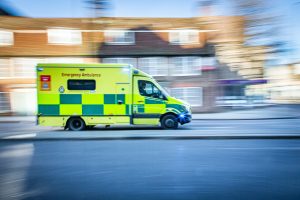Tougher alcohol policy measures could reduce ambulance call-outs according to study.
A University of Stirling team, led by Professor Niamh Fitzgerald, recommended new alcohol policy measures should be considered after results from their study showed it would reduce drinking-related ambulance call-outs.
The study showed callouts related to drinking in licensed premises fell significantly during the first lockdown but were quickly replaced by alcohol-related home callouts.

Professor Fitzgerald believes the studies findings present an opportunity for policymakers to maintain the positive outcomes lockdown has created for the NHS and emergency service.
Including a reduction in what paramedics described as a “mass public intoxication” on weekends.
Professor Fitzgerald said: “During the pandemic, both in the UK and abroad, licensed premises – including bars, restaurants and nightclubs – faced significant restrictions, including closures and curfews, which helped to reduce the spread of the virus. However, we know that these restrictions also led to many people drinking more alcohol at home.”
The research team involving academics from ISMH (Institute for Social Marketing and Health), and the University of Glasgow analysed interviews with licensing stakeholders and ambulance clinicians.
They found that when the lockdown was in place overall ambulance callouts decreased in comparison to the previous year. But, alcohol-related callouts, fell much more sharply showing a 23% reduction. The drop was even more apparent on weekends at 31.8%.
Ambulance clinicians said that the number of late-night call-outs related to alcohol “plummeted” when premises closed completely or operated under curfew.
However, there were perceived increases in domestic callouts and concerns raised over home drinking.
One clinician said: “it’s so nice to go to work on a Friday night knowing that you don’t have to go into pubs and clubs… it’s made a huge difference.”
Several clinicians reported that the reduction in alcohol-related calls meant that they were spending more time on other calls.
Professor Fitzgerald said: “The views expressed by paramedics are powerful and give pause for thought about whether business recovery post-COVID has to mean the return of the ‘mass intoxication’ described.”
The new paper Lockdown and Licensed Premises: COVID-29 Lessons for Alcohol Policy, is published in the Drug and Alcohol Review.

